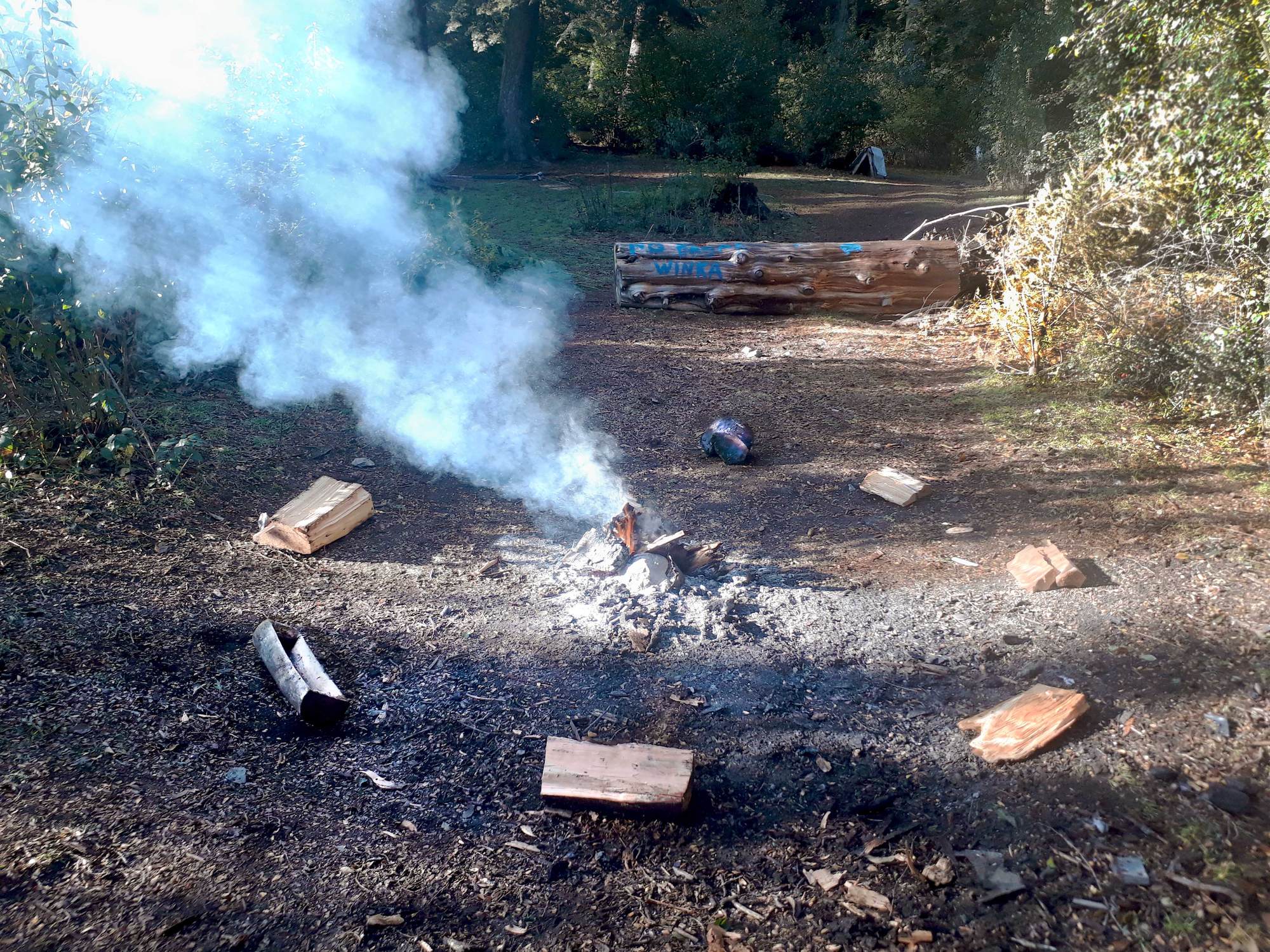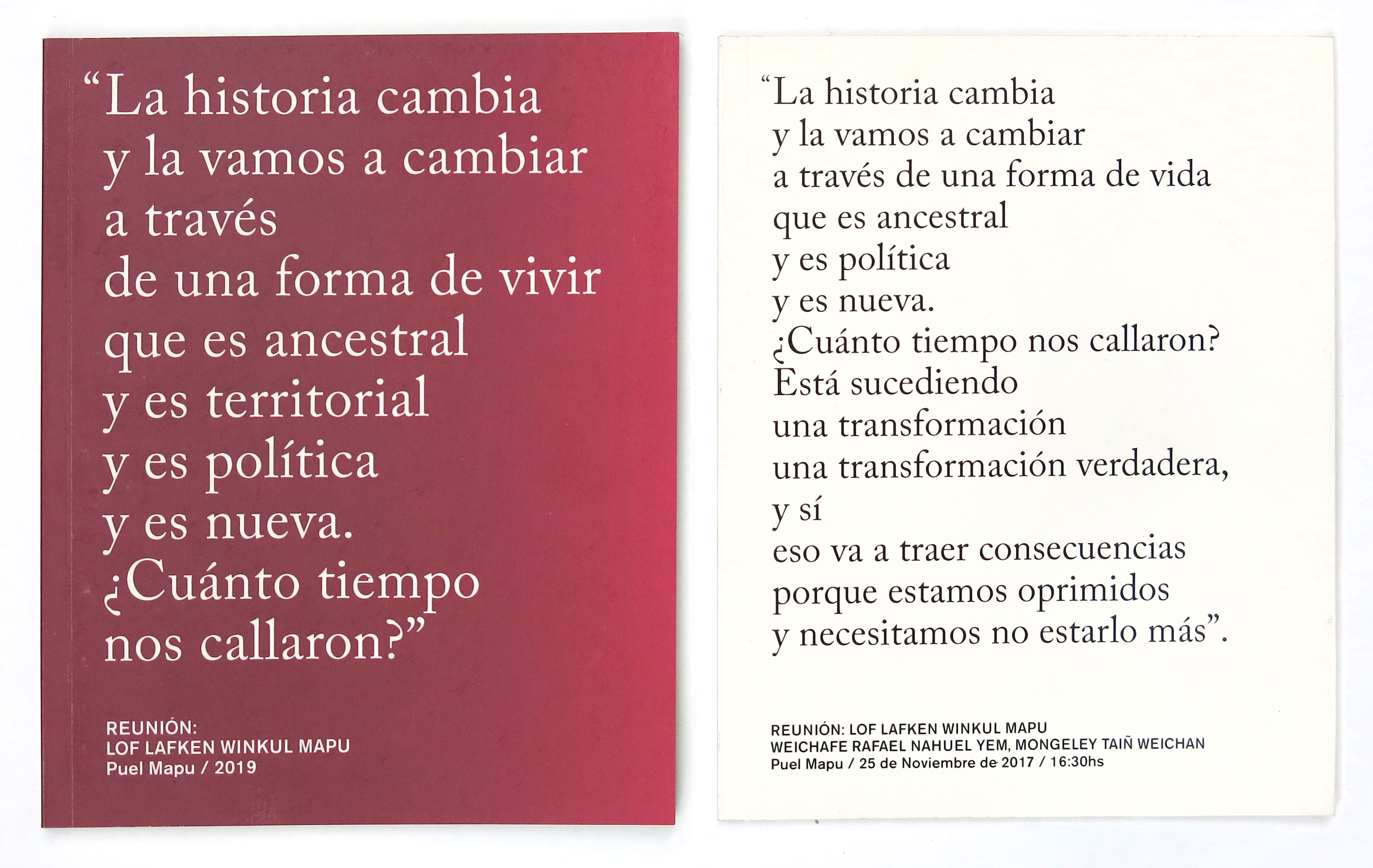A counter-narrative to the internal enemy
Action: 2019-2022 / Puel Mapu: Mapuche territory.
Book: Download in English / Download in Spanish

Lof Lafken Winkul Mapu is a Mapuche community that is recovering its ancestral land in what is known nowadays as Argentina. A few years ago, their members lived in marginalized neighbourhoods around Bariloche, until one day they gathered and said: “We are not poor, we are indigenous, we are going back to our land, to live as a community, to speak our language, to rebuild our knowledge”. In that land, a machi is rising, a transcendental spiritual authority that hadn’t appeared in the Puel Mapu for almost a hundred years. In that land, on November 25, 2017, the State repressive forces murdered Rafael Nahuel.
Walking through Mapuche land, I arrive to the community and invite their members to write a book. They speak to me and I write down by hand everything they say. Ten people are speaking: it’s a collective voice. Nothing is recorded. Every time they stop to take a breath, I start a new line. The next day, we print the text and read it aloud in a round of eight logs around a fire. Each person has one copy and a pen. We correct the text together, reach the final version and send the books to print. Half of the books are distributed by the community in Mapuche land, the other half is distributed by Reunión in other places.

The path of the work:
— Two thousand copies were printed. A thousand were distributed by the community and a thousand were distributed by Reunion.
— We made an expanded edition that circulates exclusively within the Mapuche territory. This edition gathers the voice of other Mapuche communities in the region. It was presented with rounds of reading and conversation in different communities, towns and cities of the Mapuche territory.
— We made an expanded edition that is distributed outside the Mapuche territory, incorporating the voices of Pilar Calveiro, Elizabeth Gómez Alcorta, Marie Bardet and Claudia Briones, who help us think about some of the politial powers and tensions that emerge from the first edition. Their voices were also transmuted from oral to written through the Reunion procedure. edition is part of the program of different universities and schools throughout the region.
— In 2022 a new edition of the book was published by the National Library of Argentina, with an afterword by María Moreno.
— The book was translated into English and Portugues.
